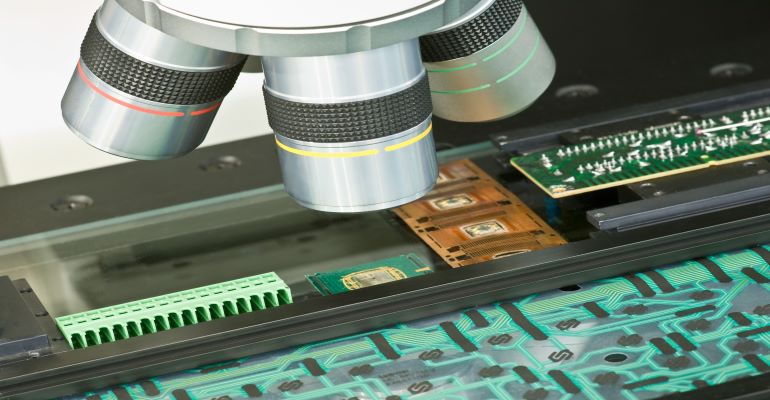Tester Inspects Chips to Spot Counterfeits
Startup semiconductor authentication company leverages chip test data to promote safety amidst global chip shortages.

The ongoing global chip shortage has led some design engineers on a desperate search to find the appropriate parts for their design, which unfortunately includes considering parts that, unbeknown to them, are counterfeit replicas of the real part. Enter Chiplytics, a hardware security company offering inspection technology. The startup has developed a proprietary testing technology that screens chips to profile its frequency and other electrical characteristics and performs a detailed visual inspection, in the hope of spotting counterfeit parts.
Chiplytics was launched from the incubator of venture capital firm Scout Ventures. The company was co-founded by Stephen DiBartolomeo, an Associate at Scout and U.S. Navy veteran, who served as a Cryptologic Warfare Officer at the National Security Agency. Chiplytics’ other co-founders are Steven Dourmashkin and Matthew Skeels, engineers from Cornell University working on their second startup together.
The technology developed by Chiplytics uses a specially designed tester that allows chips to be socketed for circuit testing. According to Dourmashkin, the tester pulses the chip in a manner analogous to “ringing”. This would produce a corresponding frequency that in turn is used to identify the chip. In addition, the tester performs a visual chip inspection. Both the electrical and visual data for each chip are stored in a database for subsequent viewing on a web application.
By electrically and visually examining lots of chips, the tester can detect small differences that are clones, counterfeits, or damaged chips. The chip test enables companies to source and test chips before they get put into high-reliability systems.
“We have seen issues where chips fail in the field and we have to rework and desolder boards,” said Dourmashkin. The Chiplytics performs the testing non-invasively, detecting anomalies using machine learning that will keep companies ahead of the evolving counterfeit chip market.
According to Chiplytics, counterfeit semiconductors pose an estimated $200 billion risk per year to the global electronics supply chain, a situation exacerbated by the current global chip shortage. Recent estimates from the International Anti-Counterfeit Coalition suggest a 57% increase in the global counterfeit market since the pandemic began, with microelectronics being one sector on the rise.
The company is now evaluating the tester with customers. Chiplytics is now trying to determine whether to offer the tester on a sale or lease basis. “We are still trying to refine the business model,” Dourmashkin said.
Chiplytics was launched through a collaboration with the National Nuclear Security Administration and Sandia National Labs, where the technology was originally invented. Scout Ventures incubated Chiplytics through a $300k seed round, with an additional $50k of non-dilutive funding sourced through Sandia and the US Army.
Spencer Chin is a Senior Editor for Design News covering the electronics beat. He has many years of experience covering developments in components, semiconductors, subsystems, power, and other facets of electronics from both a business/supply-chain and technology perspective. He can be reached at [email protected].
About the Author(s)
You May Also Like


.jpg?width=300&auto=webp&quality=80&disable=upscale)


